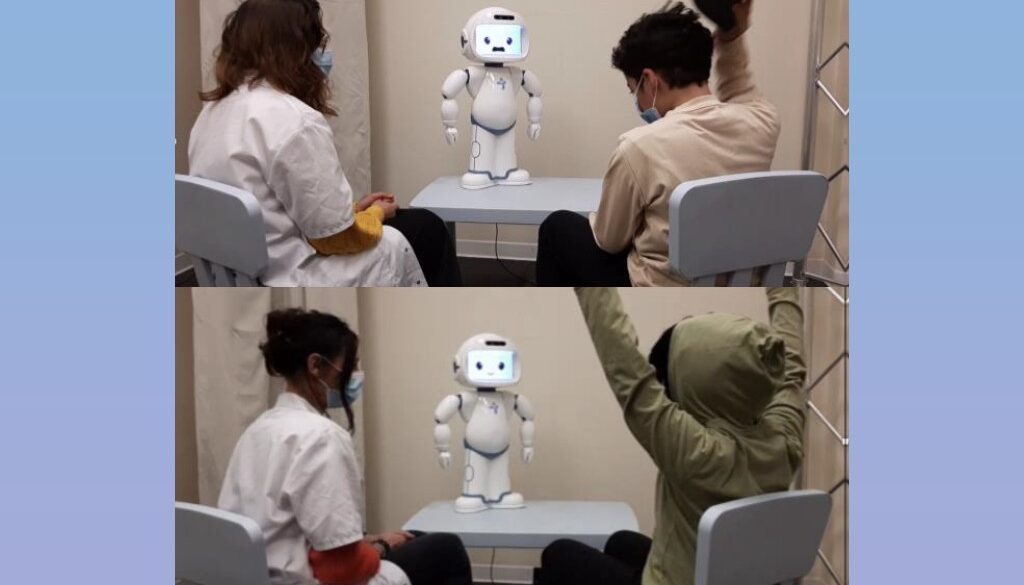
Abstract
As socially assistive robots (SARs) become increasingly integrated into therapeutic settings, trust emerges as a critical factor, particularly when supporting vulnerable populations such as children with neurodevelopmental disorders (NDD). This study investigates how therapists perceive the trustworthiness of QTrobot, a humanoid robot, during re-education sessions. Using the Multi-Dimensional Measure of Trust (MDMT) scale, 31 psychomotor therapy students assessed QTrobot’s behaviors, which were deliberately manipulated to appear either trustworthy or untrustworthy across four dimensions: reliability, capability, sincerity, and ethics. Results showed that trustworthy robot behaviors significantly increased trust ratings, especially in capability, reliability, and sincerity. However, ethical behavior ratings did not significantly differ between conditions, suggesting challenges in evaluating robotic ethics within sensitive care contexts. These findings highlight the importance of designing socially assistive robots that not only demonstrate technical competence but also convey warmth, sincerity, and ethical sensitivity to be perceived as truly trustworthy partners in therapy. Future research should explore more contextualized measures of trust and integrate therapist feedback from real-world applications.
Reference:
Salvatore M. Anzalone, Mariyem Ahmida, Jainling Zou, David Cohen, Zibetti Elisabetta. Is that robot trustworthy to assist me in a reeducation session with NDD children? Robot. Robot Trust for Symbiotic Societies (RTSS) workshop at ICRA 2024. , May 2024, Yokohama, Japan.
https://ephe.hal.science/hal-05008493/